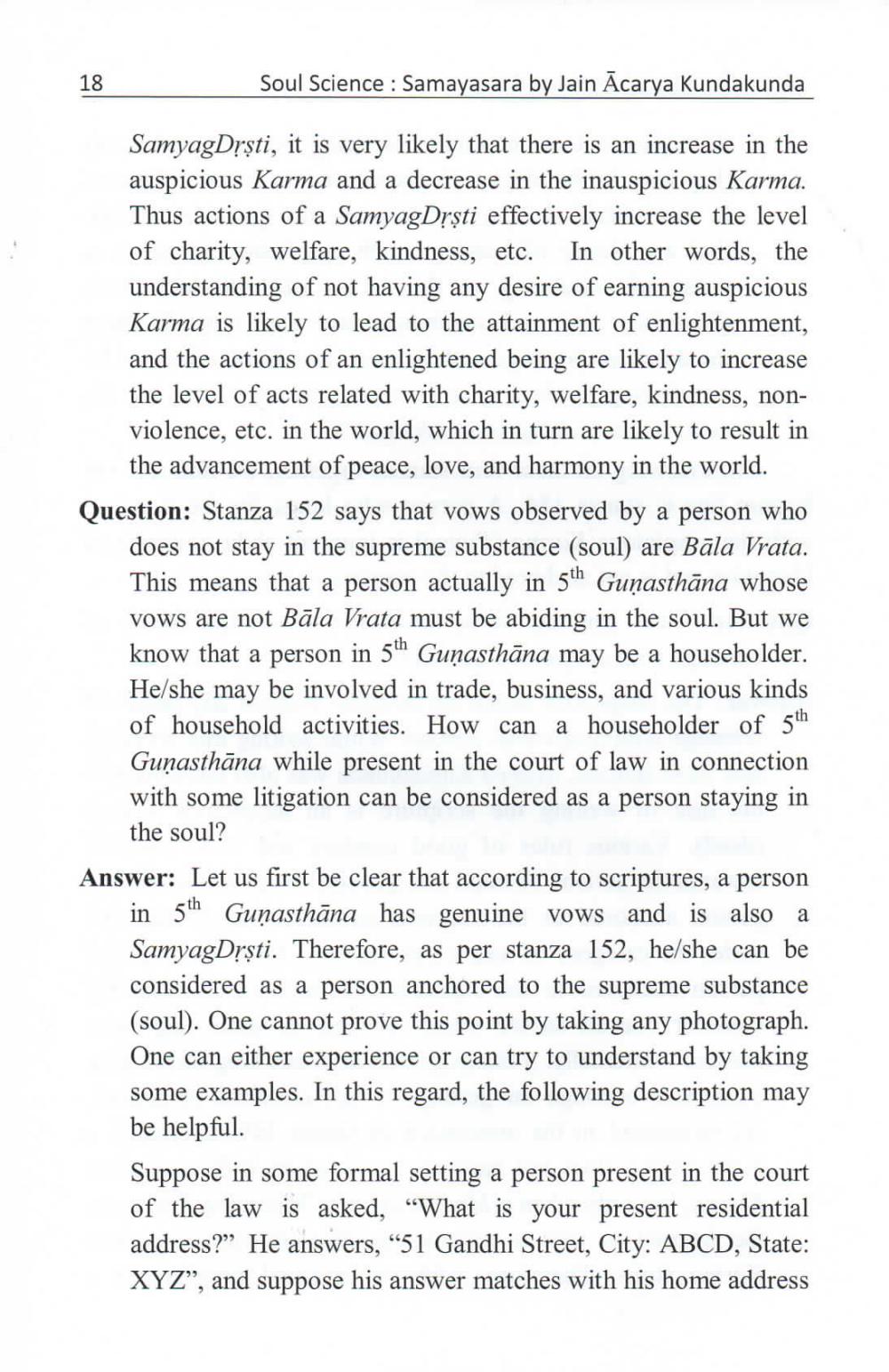________________
18
Soul Science : Samayasara by Jain Acarya Kundakunda
SamyagDrști, it is very likely that there is an increase in the auspicious Karma and a decrease in the inauspicious Karma. Thus actions of a SamyagDrşti effectively increase the level of charity, welfare, kindness, etc. In other words, the understanding of not having any desire of earning auspicious Karma is likely to lead to the attainment of enlightenment, and the actions of an enlightened being are likely to increase the level of acts related with charity, welfare, kindness, nonviolence, etc. in the world, which in turn are likely to result in
the advancement of peace, love, and harmony in the world. Question: Stanza 152 says that vows observed by a person who
does not stay in the supreme substance (soul) are Bāla Vrata. This means that a person actually in 5th Guņasthāna whose vows are not Bāla Vrata must be abiding in the soul. But we know that a person in 5th Guņasthāna may be a householder. He/she may be involved in trade, business, and various kinds of household activities. How can a householder of 5th Guņasthāna while present in the court of law in connection with some litigation can be considered as a person staying in
the soul? Answer: Let us first be clear that according to scriptures, a person
in 5th Guņasthāna has genuine vows and is also a SamyagDrşti. Therefore, as per stanza 152, he/she can be considered as a person anchored to the supreme substance (soul). One cannot prove this point by taking any photograph. One can either experience or can try to understand by taking some examples. In this regard, the following description may be helpful. Suppose in some formal setting a person present in the court of the law is asked, “What is your present residential address?” He answers, “51 Gandhi Street, City: ABCD, State: XYZ”, and suppose his answer matches with his home address




